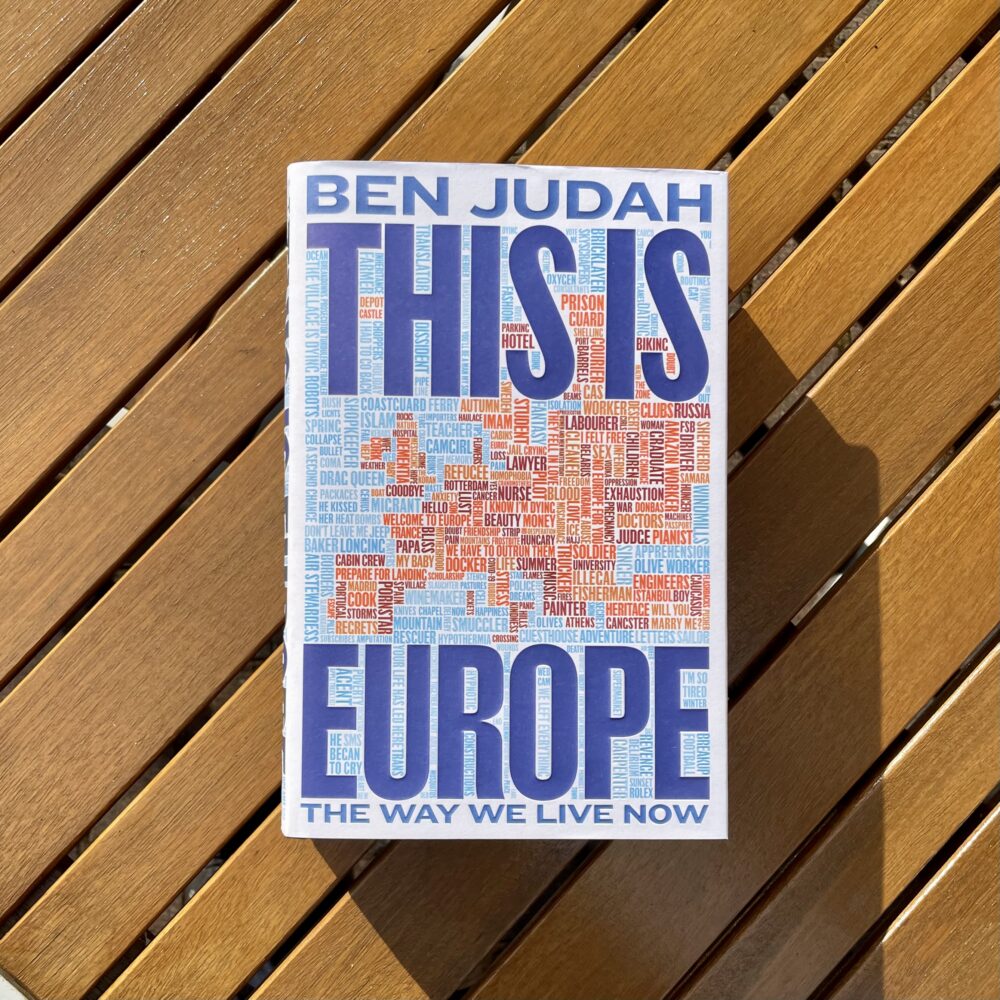‘This Is Europe’ by Ben Judah

This collection of 23 prose stories is based on interviews Judah conducted with people from around Europe. Documentary photographs accompany each story. It aims to build a picture of life in Europe for the ‘ordinary worker’, revealing a diverse community of individuals facing all sorts of challenges in life. Judah’s stories also often reflect life as the COVID-19 pandemic swept Europe; several are stories of refugees fleeing to Europe. Climate change is also a recurring theme.
I’m often intrigued to read about the work lives of others, especially when—like many in this book—the examples are very far removed from my day-to-day experience. It’s fascinating to have an insight into what it is like to take over the family vineyard or to be a pilot who guides cargo ships into harbours. This book provides insight into other worlds that can be found on this continent.
However, it’s taken me about six months to get through this book, which is entirely attributable to the style of writing, which I found very difficult to tolerate on two fronts.
Firstly, Judah writes every single story in the same consistent tone and style. This is a weird choice: when telling different stories from different parts of the continent, you would think it would be natural to vary the tone. For example, I’m sure farmers have particular idiosyncrasies in how they spin a yarn compared to flight attendants. Here, every story is flattened to the same mildly journalistic tone. To me, it feels like that sucks out a lot of the potential pleasure of this book.
Secondly, Judah has an altogether infuriating habit of slipping into the second person for a few sentences now and again. In his afterword, he says that he tried ‘techniques’ to ‘make you feel like any one of these people could be you’, and I think this weird linguistic tic must be what he’s referring to.
This passage provides a good example of Judah using the second person injudiciously:
You tell yourself you’ll never get married.
You tell yourself you know what love looks like.
You don’t expect it to look like a divorced Swedish Finn, who has spent most of his life in Germany, older, with two children over there, giving it a go in Ireland. You also don’t expect them to be called Patrick. Or to be living with his mother in a castle in County Cork.
Maybe it’s my quirk rather than his, but this makes me want to scream: ‘No, I don’t!’
Here’s an example of a random switch from third to second person:
The trolley rattling underneath her.
Her last glimpse of her husband’s face.
You’ll feel much better when this is out.
The doctor smiled. Then the anaesthetist bent over.
The cold gas coming out of the mask.
Count back from ten for me now.
You never make it to seven.
I can only assume that we’re using the second person in the third line as Judah is quoting either the husband or the doctor. I can live with that. But then, by the final line, we’re using the second person for a different reason: presumably as part of Judah’s ‘technique’. It just made me want to fling the book across the room.
Luckily, each of the chapters is a discrete profile of an individual, so it is the sort of book that can be readily appreciated in small chunks.
Despite all of this—and it feels good to get that rant out—I think this book is worth reading. Judah’s stories are varied and thought-provoking, and I think the whole made me feel a little differently about the things that unite people across Europe.
This post was filed under: What I've Been Reading, Ben Judah.